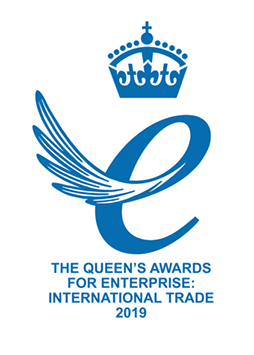Hydrogen Viking, dictating play?

Credit: Christian Erichsen, Green Yacht AS
A superyacht powered solely by hydrogen which should be sea ready by next summer and up for private sale – sounds a little farfetched? Well, that vessel is currently under construction in Bergen, Norway. When complete Hydrogen Viking will be world’s fastest hydrogen-powered luxury yacht capable of over 30 knots.
The brainchild of Norwegian firm, Green Yacht AS the vessel is being constructed using the hull of a 28m Sunseeker Predator 95 previously owned by the Gaddafi family (pictured above). Building began last June and the pilot project is due for completion by summer 2022. Green Yacht hopes that the system will set a precedent for further commercialisation of hydrogen propulsion systems both for new builds and conversions.
In January, Norwegian propulsion system manufacturer, Servogear was announced as the propulsion system supplier for Hydrogen Viking. The vessel will be equipped with Servogear’s Ecoflow Propulsor, which will derive its energy from a battery bank. Green Yacht said the hydrogen cell to battery bank concept is quite common in theory but to build it is virtually unprecedented.
Corvus Energy will provide the hydrogen fuel cell technology to the Hydrogen Viking, this is the keystone of the entire project. Corvus, an energy storage development firm, is using the vessel as a test craft to begin development and production of sustainable, large scale maritime-certified hydrogen fuel cell systems.
In doing so, Corvus is leading a project to develop and produce modularised and cost-effective PEM (Proton Exchange Membrane) fuel cell systems for the international marine market. The project has received €5.2m in funding from state agency Innovation Norway.
Fuel cell modules supplied by Toyota
The initiative combines Norwegian maritime expertise with fuel cell modules supplied by Toyota, which has 30 years’ experience in the production of fuel cells for the car market. Corvus and Toyota signed a partnership in December 2020 which secures Corvus access to fuel cell technology while enabling mass production.
Hydrogen Viking has been designed largely by Rory Coase, founder, Coase Design. Coase has partnered with Sunseeker on various projects in the past including Predator 95s however, as with most of the team involved, this is his first hydrogen project.
Coase told Superyacht Investor: “When someone says we’ve got Gaddafi’s old yacht and we’re converting it to hydrogen, that’s quite an engaging pitch isn’t it? I was really happy to be taken on.”
Coase said that whilst building has only been going on in the past year or so, the project itself is three years old. The problem was that the technology to build a solely hydrogen-powered yacht did not exist three years ago. Developments in the past six to 12 months have made such a vessel possible and Green Yacht is taking advantage of this.
“There is now a sizeable team working on the vessel and it is in the yard now as we speak,” said Coase. “We have a structural design engineer, me, Servogear making the propulsion arrangement, Corvus providing the fuel cell technology.”
‘Trouble is no one has done it’
“This is my first zero emissions yacht, I have done some small electric concepts for clients that haven’t come to market. The trouble is no one has done it because a hydrogen-powered has never been constructed before. There are a lot of concepts out there but we are the first ones to make that a reality and find a workable solution.”
As to why one of the world’s first hydrogen superyachts was previously the plaything of the late dictator of Libya? “It’s simply that they were looking for a hull of this this size in order to house the hydrogen and propulsion systems required. The Gaddafi family had grounded the yacht on a reef, done some real damage to the hull. The shipyard in Malta had then repaired that to a good standard, then it was just a structurally sound hull needing a refit,” said Coase.
From a design point of view the project has presented challenges. Initially the yacht has been designed to showcase itself essentially as a hydrogen-powered vessel, said Coase. This includes designing a conference space to offer the boat as an educational tool or for use in corporate events.
“But this is all with the mind that we are wanting to sell this on the open market as a private yacht. I believe there is an appetite for buying this boat, I have had brokers approaching me saying ‘When this goes on the market and is resold, I’ve got people who want it’. So perhaps we will just build it as a private yacht and prove we can get it out there. That is a little undecided at present because we are excited by the level of response,” said Coase.
The Green Yacht AS team believes that when this proof of concept is complete, it will prove you can maximise space onboard as well as go green. A combination the team predicts will lead to a massive amount of retrofitting over the coming decades.
Coase added: “That is the ambition of Green Yacht, to be the company that you go to if you have a 100ft yacht that you’ve owned for 10 years, but you don’t like the idea of burning diesel.”
‘Beginning of the final push’
The concept is now at what Coase call the “beginning of the final push”, Christian Erichsen, project manager for Hydrogen Viking told Superyacht Investor the team is currently working on the final design and engineering specifications.
“There is yet a lot of engineering to be done,” said Erichsen. “We need to place batteries, install hydrogen tanks and fuel cell arrangements. The engine and propulsion supplied by Servogear system will installed late this summer.”
The Burgess New Construction team at Burgess Yachts told Superyacht Investor that a hydrogen-powered superyacht would definitely interest them. “The impact on hydrogen on a yachts general arrangement plan would be significant – storage of hydrogen, availability of hydrogen, production of pure hydrogen without being more detrimental to the environment would be key factors.
“Extracting hydrogen from other chemicals i.e. methanol or ammonia lends itself to yachts, as these chemicals are liquid at room temperature so storage of them can be more conventional.
The team said clients are focusing on the “green/eco” aspects of a new yacht as well as trying to provide a platform that can be readily refitted to accommodate future fuels and technologies. Solar power, hydrogen, batteries, hybrid are all areas that the new construction focus on when developing new yacht projects.
Hydrogen Viking is hoping to be a first for the superyacht industry and as such could dictate play for vessel propulsion in years to come.
Green Yacht AS intends to be the go-to company for hydrogen propulsion refits, whilst Corvus Energy has the backing of Toyota in its development of hydrogen fuel cell. All of which are important steps in creating momentum for the construction of hydrogen storage infrastructure on a commercial scale. The idea of hydrogen-powered superyacht might not be so farfetched after all.
Subscribe to our free newsletter
For more opinions from Superyacht Investor, subscribe to our email newsletter.


